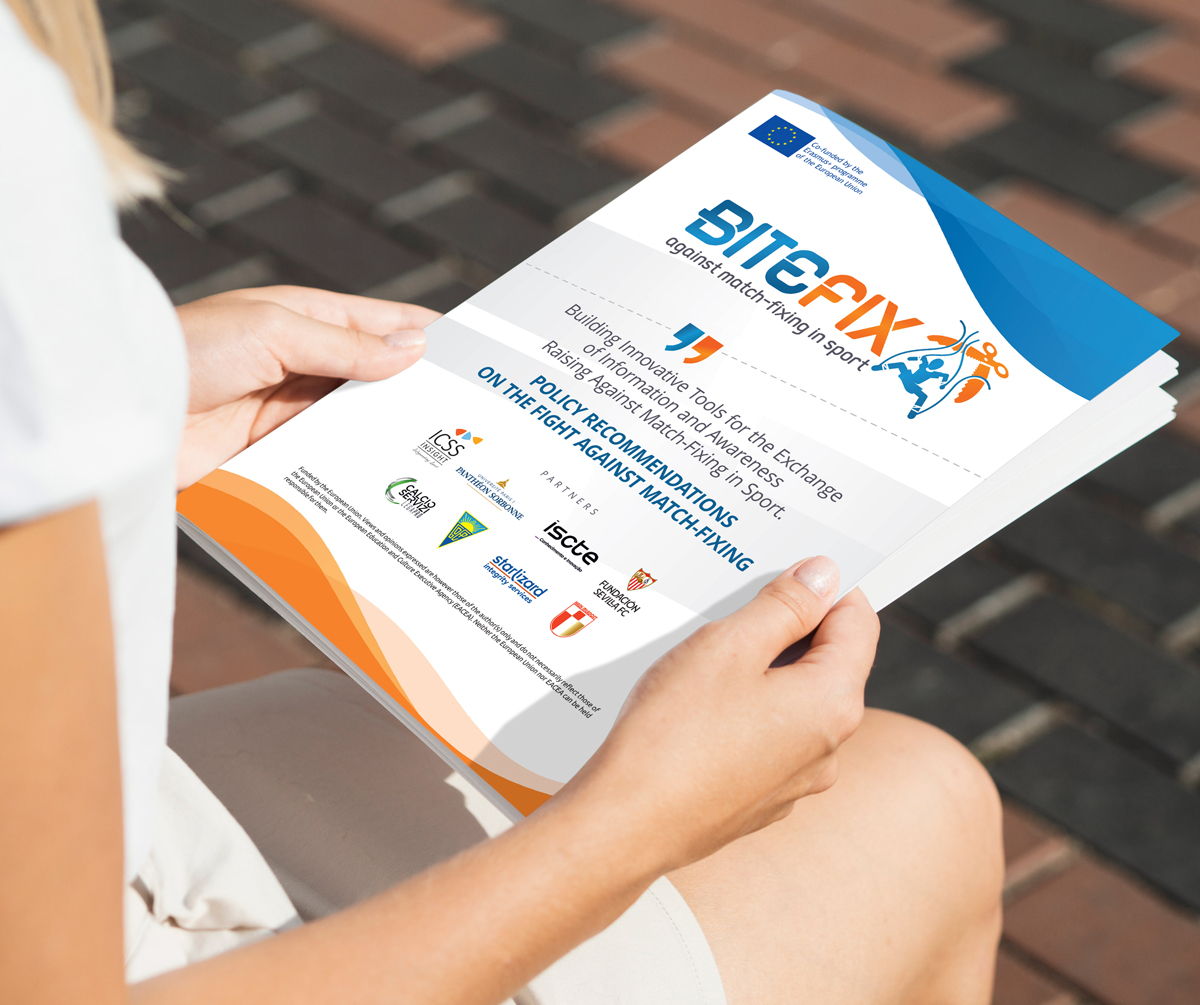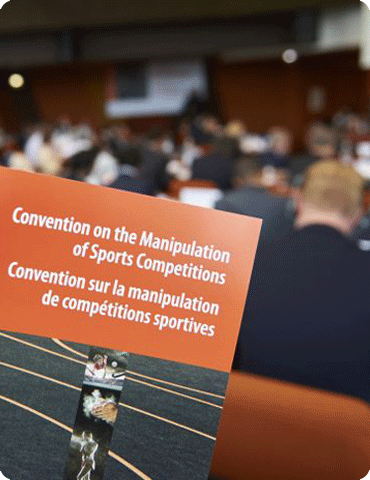Recommendations Guide
Building Innovative Tools for the Exchange of Information and Awareness Raising Against Match-Fixing in Sport.


Overview
In recent years – especially from the early 2000s – several scandals arose in sports, related to the manipulation of sports competitions (match-fixing), in particular associated with online sports betting, deriving, in large part, from the growing economic dimension of sport, as identified by the European Union’s White Paper on Sport of 2007.
The new economic dimension of sport, associated with an expressive increase in its mediatic impact – largely due to an accelerated development of technological platforms of information and communication – led to the rise of various new economic activities but, also, to several illegal ones.
Consensual doctrine considers that the ‘explosion’ of online gaming has been greatly influenced by two technological innovations: (1) the first gaming software, created by Microgaming, in 1994 and (2) the development of cryptographic communications protocols, allowing online financial transactions, by Cryptologic, in 1995 (PRECRIMBET, 2017).
This context – involving growing financial flows and new ‘actors’ – is, without doubt, one of the main reasons for a significant increase in the number of cases of match-fixing, supported by two specific factors: on one hand, the proliferation of types of bets offered (facilitated by new technologies), under effective supervision by the authorities responsible for the regulation of the betting markets and, on the other hand, the development of a vast illegal market, providing very high profits that attract criminal organizations interested in intervening and (interfering) in sports competitions through the betting market, with a view, among other objectives, of money laundering.
These circumstances represent a new challenge for the Rule of Law (on a global scale, considering the transnational nature) in what concerns the fight against fraud, organized crime and corruption associated with sports, but constitutes also a challenge for all stakeholders involved, as the sporting universe, the regulators and operators of legal betting and governments, in a way that these practices constitute a serious threat to the future of sports as a social, cultural, economic and political practice of primary importance, placing at high risk its integrity and values that have been historically acknowledged, as well as his own sustainability.
In response to these new facts and circumstances stakeholders are called to consider innovative solutions, review concepts and stimulate extensive concertation (and action) by the directly interested parties and key-stakeholders.
One of such aspects is the general increase in transparency of operations and management of the interests in presence (sports universe, governments, regulators and betting operators), in order to ensure the fundamental public scrutiny that is applicable, by definition, to all areas of community life (regardless of the greater or lesser sympathy it elicits).
It is with this background that an International Convention was launched in 2012, under the aegis of the Council of Europe – attentive to its role of protection of the Rule of Law, of Human Rights, Ethics and the values of sport therein.
Underlying this Convention (approved in Macolin, Switzerland, in 2014, and entered into force in 2019) is the intention to pave the way for specific actions in the field of sport, with a view to countering some of the main integrity threats identified.
The manipulation of sports through sports betting poses the greatest threat to the integrity of sport.
Jacques ROGGE President of the International Olympic Committee (IOC) – 2001/2013
Information exchange between public authorities, the sport movement and betting operators is considered crucial to identify and sanction sport integrity violations, such as match-fixing, and therefore the Convention elects it as the main operational mechanism to enable stakeholders to face these threats.
Such ambitioned exchange of information, nevertheless, can only operate if in compliance with Personal Data protection laws and regulations.
It is with this background that the BITEFIX Recommendations direct particular attention to issues implying data protection for exchange of information purposes.
Chapter III – Exchange of information
(Macolin Convention)
Article 12 – Exchange of information between competent public authorities, sports organisations and sports betting operators
(1.) Without prejudice to Article 14 each Party shall facilitate, at national and international levels and in accordance with its domestic law, exchanges of information between the relevant public authorities, sports organisations, competition organisers, sports betting operators and national platforms.
In particular, each Party shall undertake to set up mechanisms for sharing relevant information (…) assist in the carrying out of the risk assessment (…) or carrying out investigations or proceedings concerning the manipulation of sports competitions.
Article 14 – Personal data protection
(1.) Each Party shall adopt such legislative and other measures as may be necessary to ensure that all actions against the manipulation of sports competitions comply with relevant national and international personal data protection laws and standards, particularly in the exchange of information covered by this Convention.

